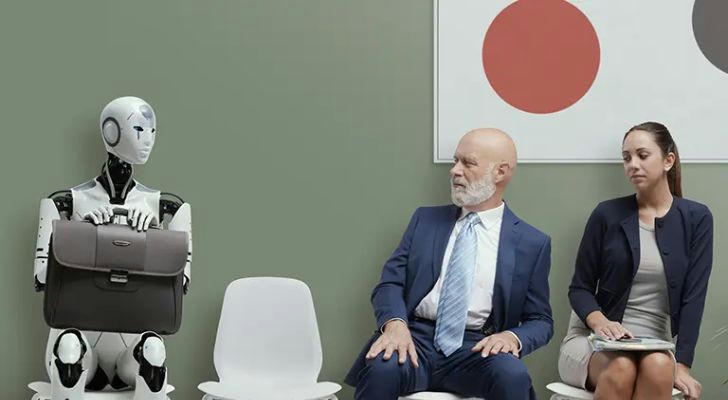Will AI Take Your Job Soon
Artificial Intelligence isn’t coming—it’s already here. From the factory floor to customer service, AI is changing how we work, who gets hired, and which jobs are disappearing. In the United States, we’re entering a new employment era, where human labor and machine efficiency collide. The question is no longer if AI will affect your job, but how fast.
Chapter 1: Jobs Already Under Attack
Let’s be honest—some jobs are in real danger. If your work is repetitive, rule-based, and doesn’t require a lot of critical thinking, you’re probably already feeling the heat. AI excels at tasks like:
- Data entry
- Bookkeeping
- Basic customer service
- Telemarketing
- Logistics scheduling
Tools like ChatGPT, automation bots, and machine learning algorithms are doing these jobs faster, cheaper, and—frankly—more accurately than humans.
In fact, experts predict that up to 40% of current U.S. jobs may be impacted or restructured by AI by 2035. That doesn’t mean everyone gets fired—but it does mean jobs will evolve rapidly, and many roles will shrink or vanish.
Chapter 2: White-Collar Isn't Safe Anymore
Think only factory workers should worry? Think again. AI is moving up the ladder.
- Paralegals are being replaced by AI that can scan legal documents in seconds.
- Copywriters are competing with AI that can write ads, emails, and articles (yes, like this one).
- Accountants and analysts face pressure from AI that crunches numbers 24/7.
Even some medical diagnoses are now being made by algorithms that analyze x-rays better than human doctors. That’s not science fiction—it’s happening today.

Chapter 3: The Rise of “AI-Centric” Jobs
But this isn’t all doom and gloom. As AI takes over the dull stuff, new kinds of jobs are being born. Some roles barely existed five years ago, and now they’re in high demand:
- AI Trainers: People who teach machines how to think by feeding them examples.
- Prompt Engineers: Specialists who craft questions and commands that guide AI output.
- Ethical AI Consultants: Professionals who ensure AI systems aren’t biased or dangerous.
- AI Operations Managers: People who oversee AI systems just like IT managers oversee computer networks.
These are not sci-fi roles. These are real, high-paying, high-demand jobs right now.

Chapter 4: Soft Skills Are the New Superpower
Ironically, as machines get smarter, human skills are becoming more valuable than ever.
- Emotional intelligence
- Creativity
- Critical thinking
- Collaboration
- Leadership
These are the things AI still struggles with—and likely will for a long time. People who can combine tech knowledge with strong people skills will dominate the future job market.
Chapter 5: The Great Re-skilling Wave
Here’s the uncomfortable truth: millions of Americans will need to learn new skills or risk falling behind. But here’s the good news: re-skilling has never been easier or faster.
Platforms like Coursera, Udemy, and LinkedIn Learning let you learn in-demand tech skills from your laptop—often for free or cheap. In just months, you can pivot from a fading job to a future-proof one in:
- Data science
- Digital marketing
- UX/UI design
- Cybersecurity
- AI support and maintenance
Governments and employers are catching on, too. Expect more tax breaks, grants, and training programs focused on future-facing roles.
Chapter 6: Who Wins, Who Loses?
Let’s not sugarcoat it. AI will widen the gap between high-skill and low-skill workers. Those who adapt will rise. Those who resist will be left behind.
Winners will include:
- Tech-savvy professionals
- Lifelong learners
- Entrepreneurs who embrace AI tools
- Workers in AI-resistant fields like healthcare, trades, and education
At risk:
- People unwilling to adapt
- Those in repetitive, rules-based roles
- Businesses that don’t automate or upskill their staff
The job market will become more dynamic, more competitive, and more reliant on digital literacy.
Conclusion: AI Won’t Replace You. But Someone Using AI Might.
Here’s the bottom line: AI isn’t coming for your job. It’s coming for the tasks within your job. The workers who survive—and thrive—will be those who learn to work with AI, not against it.
Don’t wait for disruption to come knocking. Start learning, start experimenting, and start thinking of yourself as a partner to technology—not a victim of it.
Because in the age of AI, the greatest risk is standing still.
If you'd like a visual version of this article or need a downloadable PDF version for sharing or publishing, just let me know!
